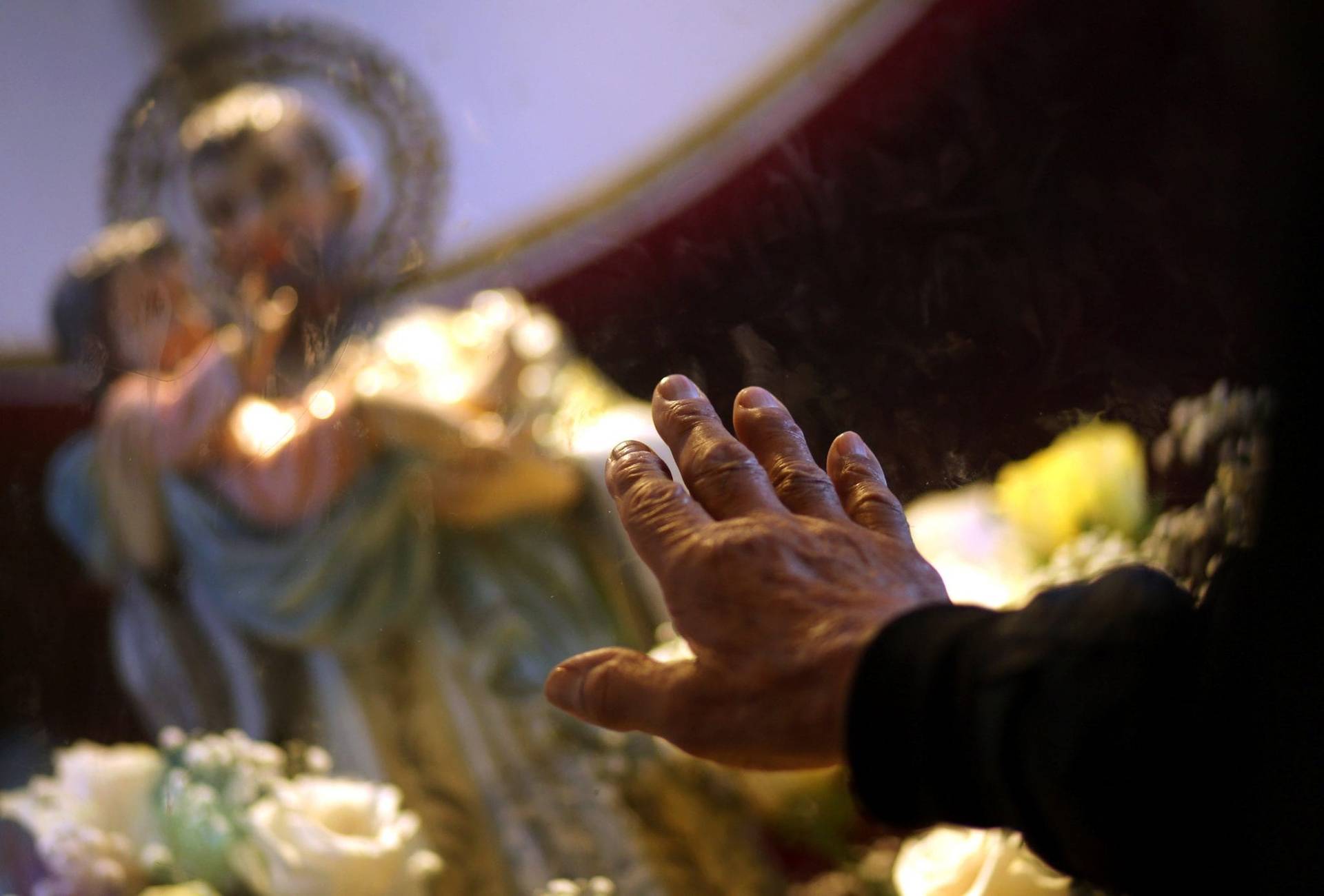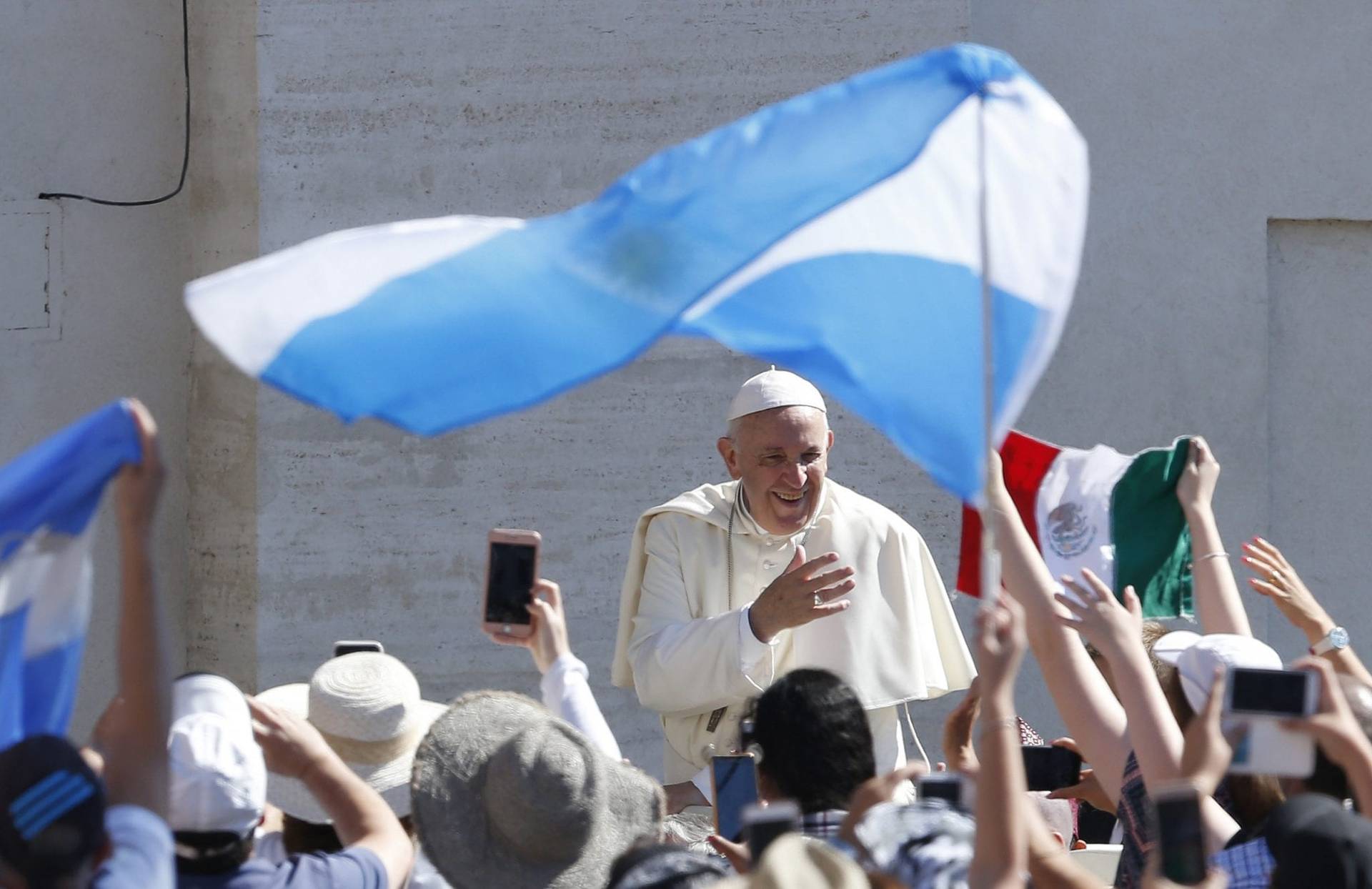ROSARIO, Argentina – Pope Francis has been both applauded and accused for meddling in Argentina’s presidential primaries last Sunday, however a local bishop has described the idea that the pope was involving himself in his country’s politics as “science fiction.”
Meanwhile, the pope’s representative in Colombia has said he regrets the “slowness” of the pacification of the country after the 2016 peace accord. A Venezuelan cardinal has complained that the situation in his tumultuous country continues to worsen.
Here is a round-up of the latest from the Catholic Church in Latin America.
Argentina: Did he, or didn’t he?
On August 11, Argentina held its unique presidential primaries, which, instead of picking the candidates – who’ve been known for almost two months – function as an incredibly expensive national poll ($91 million). They delivered a 15-point difference in favor of the left-wing Alberto Fernandez-Cristina Fernandez de Kirchner ticket, which is seeking to defeat the right-wing alternative of President Mauricio Macri and Miguel Angel Pichetto.
Though the result was expected, the margin wasn’t, and it triggered a historic stock market and currency crash and cast doubt over the possible reelection of incumbent Macri.
On Friday, the Financial Times published an article penned by the paper’s former Buenos Aires correspondent claiming that Pope Francis was the brains behind the Fernandez-Fernandez formula, after urging Alberto to reconcile with Cristina. The two had been enemies since the beginning of her first term as president more than a decade ago.
The report caused shockwaves in the incredibly divided Argentine society, enraging many middle-class Catholic voters, most of whom support Macri. Despite several attempts by the bishops’ conference and a group of priests known as the “slum priests” to keep the pontiff above the fray, the media continues to align the pontiff with Kirchner, mostly fueled by unnamed sources close to the former president.
According to a bishop who spoke with Francis in May, the allegation that it was the pontiff who told Fernandez early last year to reconcile with his former boss is all “science fiction.”
“I imagine that what the pope told Fernandez is what he tells every Argentinian who passes through Rome: Work in favor of dialogue, encounter, unity; to overcome hatreds,” Bishop Sergio Buenanueva wrote on Twitter.
“He also told us bishops that. The [report] of the Financial Times belongs to science fiction,” he said.
In Colombia, a too-slow peace
Recently Argentinian Archbishop Luis Mariano Montemayor, the pope’s ambassador in Colombia, visited Cauca, a region in the country where ex-guerrilla fighters are living. He encountered some of those former fighters, who complained they’re victims of violence.
Many former guerrillas have been murdered since a peace accord between the country’s main insurgent movement and the government of former President Juan Manuel Santos was signed in Nov. 2016, putting an end to a five-decade armed conflict.
According to a local newspaper, Montemayor noted that the former guerilla members are upholding their commitment to reincorporate into society, despite the “slowness” of the peace accord.
“The former combatants have shown their concern and uncertainty about knowing what’s going to happen to them once the concentration areas are over,” the papal representative in Colombia said, referring to “Temporary Hamlet Zones for Normalization” where former guerillas have been living.
There are an estimated eight million internally displaced Colombians, many living in the 23 normalization zones.
“We have a common problem in all these regions, we have structural problems of the state that make it difficult to implement the peace agreements,” Montemayor said. “However, we must not see just the shadows, but also the lights. Those who have seen the importance of living in harmony have a cry for peace.”
Many of the former members of the Revolutionary Armed Forces of Colombia (FARC) have no formal education or identification cards.
On the other hand, the local indigenous population expressed to Montemayor the fact that there are places in Cauca where they no longer live in fear of helicopters bombing FARC members or armed troops against the peace deal who threaten and attack ex-guerrilla members.
From Venezuela, a cardinal challenges the government
“After twenty years of Bolivarian revolution, we must ask ourselves if the people live better than before,” begins an article penned by Cardinal Baltazar Porras, appointed by Pope Francis as apostolic administrator of Caracas, Venezuela, in 2018.
Revolutions, he wrote, “have the appeal of pointing out evils, what is crooked, yet they don’t have the capacity to add but to divide.”
The genes of Venezuelan politicians, Porras argued in an op-ed published in Spanish Religion Digital, carry a “virus” that leads them to believe “they’re the reincarnation of Simon Bolivar,” who headed Venezuela’s independence war against Spain.
“They assume that their primary task is to destroy the empire – the Spaniard, the European and the [North] American – considered the only and main culprit of all our evils,” the cardinal wrote, arguing that the anti-imperialist discourse of many Venezuelan politicians has destroyed the country, leading millions of compatriots to emigrate.
This fight, Porras wrote, has led Venezuela to focus on having a voice while the country stopped producing “what gave us work, progress and strength.”
Though he never mentions President Nicolas Maduro by name, the article is highly critical of the current regime, that took over after the death of Hugo Chavez.
“Now we import food and medicines, many of dubious quality, which we proudly produced before,” he wrote. “Precariousness increases and the regime is reluctant to recognize its mistakes and open the doors to a profound change that brings security, freedom, progress and fraternal coexistence.”
Those who govern the country, Porras wrote, live “sumptuously, squandering money, spending it on promoting meetings to be applauded by a series of pseudo-leaders who know how to live very well from their own fabricated stories and the senseless generosity of those who support and fatten them.”
All the while, “people suffer, diminish, [and] die” due to the unstable situation Venezuela is engulfed in, he argued.
Follow Inés San Martín on Twitter: @inesanma
Crux is dedicated to smart, wired and independent reporting on the Vatican and worldwide Catholic Church. That kind of reporting doesn’t come cheap, and we need your support. You can help Crux by giving a small amount monthly, or with a onetime gift. Please remember, Crux is a for-profit organization, so contributions are not tax-deductible.











